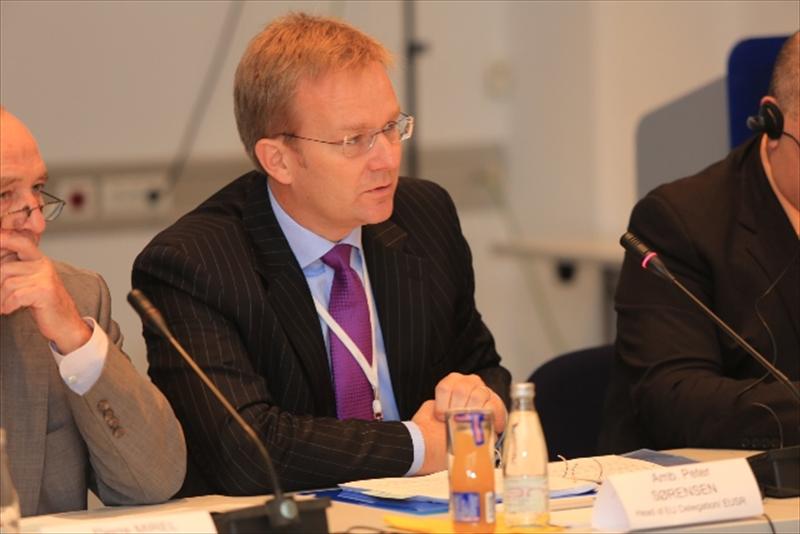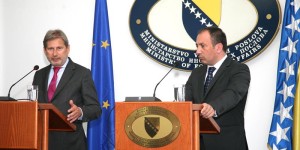Director Mirel,
Minister Ljiubic,
Ladies and gentlemen,
Good morning.
I am pleased to welcome you today to the EU Delegation to BiH for a ‘Follow up Seminar on Roma inclusion.’
Back in July 2011, the EU co-hosted a similar event, which addressed issues relating to: civil registration, education, employment, healthcare, and housing.
A series of policy recommendations were developed to help Roma gain fuller access to what are their basic and legitimate human rights, to further promote the social inclusion of Roma into the society.
Today’s follow up seminar focuses on civil registration and education in the context of raising the bar in terms of the level of the Roma community’s social inclusion.
But ladies and gentlemen, let me start by commending the BiH authorities for progress made since July 2011. Just to mention a couple of improvements:
• Implementation of the Roma Housing Action Plan is progressing;
• BiH now has a legal framework that better addresses issues concerning civil registration;
• State and regional level Roma co-ordinators have been appointed.
In addition, as of July 2014, BiH will chair Decade of Roma Inclusion 2005-2015.
But, more needs to be done. We cannot ignore the fact that the Roma population still face unacceptable levels of discrimination in society at large. Roma women are even more discriminated than women in general, Roma participation in the public and institutional live of BiH is hardly existing, institutional responses to the specific needs of the Roma society are still inadequate, so more needs to be done.
When it comes to education, one of today’s issues, let me say that access to an inclusive, free and good education is not a privilege, it is a basic human right for all children – and this must include children from the Roma community too!
Through the provision of education responsive to the need of Roma, Bosnia and Herzegovina can help build up future generations of Roma who will enjoy full social inclusion and who will be able to play an active role as full citizens. I call on BiH authorities to speed up its efforts in this area.
As concerns civil registration, the second issue discussed today, let me stress that registration in the registry books is the precondition for access to social services – access to society as such. It is therefore important that all children are properly registered at birth. I would like to welcome efforts done by the authorities in improving the legal framework and in particular with regard to the legislation related to civil registries. However, we are yet to see full harmonization among these legal acts at the various administrative levels. Consistency in their implementation needs to be improved. In that context, we also encourage Roma communities to raise awareness among their members on the importance of registration.
The European Union works closely together with BiH and the entire region to address these issues, either through the Commission aspects or member states substantial bilateral assistance. We have funded a project supporting the implementation of the respective National Action Plans, with a further project shortly to start that will help to improve the housing situation and level of social inclusion.
Projects funded by the European Instrument for Democracy and Human Rights and implemented by the OSCE/ODIHR and the Council of Europe have promoted human rights, minority protection, and inclusive education.
We also supported the adoption of the BiH Law on Anti-Discrimination – a key benchmark of the Visa Liberalisation process and will continue to support its implementation.
The EU also retains regular and open dialogue with the Office of the BiH Human Rights Ombudsman to strengthen their ability to deal with discrimination.
These are just some of the ways in which the EU is backing up its political commitments to the Roma community with clear action ‘on the ground’. As a true partner, the EU stands ready to continuously help the joint efforts of BiH authorities and civil society to improve the situation regarding Roma inclusion. This partnership, we hope and expect, will lead to concrete implementation of the respective Roma Action Plans on education, employment and health.
Let me conclude my welcome to the EU house by saying that a society can only properly function if built on fairness, tolerance and inclusion of all its citizens. This is what today’s seminar is about.
Ladies and gentlemen,
I wish you a successful seminar and look forward to hearing about the conclusions you reach today.
Thank you.




